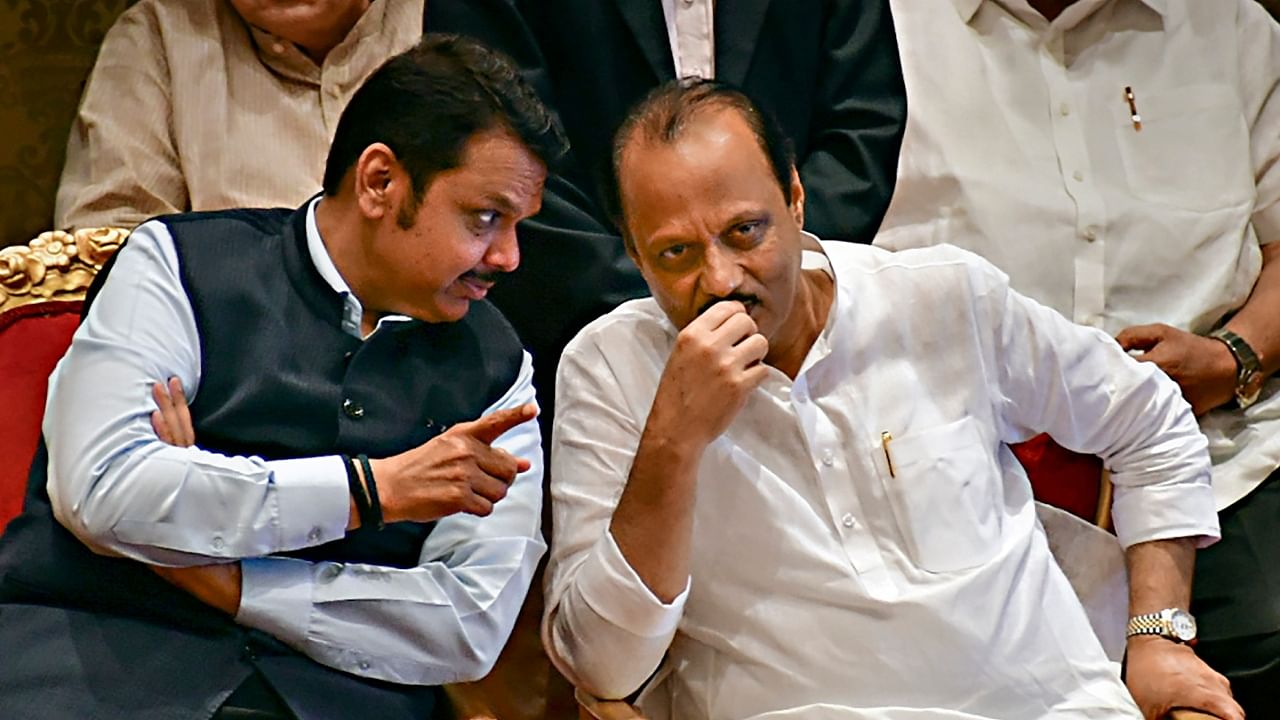
The induction of NCP leader Ajit Pawar and eight other MLAs in the Maharashtra cabinet is fraught with legal complications.
Ajit and his group, which claimed the support of about 40 MLAs, could face disqualification under the Tenth Schedule (anti-defection law) of the Constitution for anti-party activities, as the NCP controlled by Sharad Pawar has reportedly filed such a plea before the Maharashtra Assembly Speaker.
Taking a cue from the setback suffered by Uddhav Thackeray-led Shiv Sena, Pawar's NCP is learned to have written to the Election Commission of India (ECI) to prevent anyone from claiming a stake over the party, contending that the nine MLAs had acted against the party's position by joining the government.
After the amendment to the Tenth Schedule, MLAs can no longer claim 'split in the party' as a defense against disqualification proceedings.
Also Read | Praful Patel appoints Sunil Tatkare as Maharashtra NCP chief, Ajit Pawar named legislature party leader
Notably, the Constitution bench's May 11, 2023 decision on Shiv Sena split would come into play in the latest political developments in NCP.
The role of Speaker Rahul Narwekar becomes crucial in this scenario as well.
The top court, in its judgment, had held that the Supreme Court cannot ordinarily adjudicate petitions for disqualification under the Tenth Schedule in the first instance.
However, the Speaker must decide on disqualification petitions within a reasonable period, it said.
In case Ajit's group decides to appoint a chief whip to outwit the party headed by Sharad Pawar, the Supreme Court had then also clarified that the political party and not the legislature party appointed the whip and the leader of the party in the House. The court had also made it categorical that the direction to vote in a particular manner or to abstain from voting is issued by the political party and not the legislature party.
In view of the apex court ruling, can the Ajit group's claim of support from 40 MLAs save it from the disqualification petition filed by the Sharad Pawar group?
In case the Ajit faction stakes a claim to the NCP and its election symbol, the court's ruling states that the ECI can decide such issues under Paragraph 15 of the Election Symbols (Reservation and Allotment) Order, 1968, while applying a test that is best suited to the facts and circumstances of the case before it.
In a case of a dispute within the party, the Supreme Court in the case of 'Sadiq Ali vs Election Commission of India' (1972) laid down three tests, i.e., "aims and objects", "test of party Constitution" and "test of majority" in organisational and legislative wings.
However, in its May 11 judgment, the five-judge bench declared that the ECI may apply a test that is suitable to the facts of the particular dispute before it. It need not apply the same test to all disputes, regardless of the suitability of the test to those facts and circumstances.
